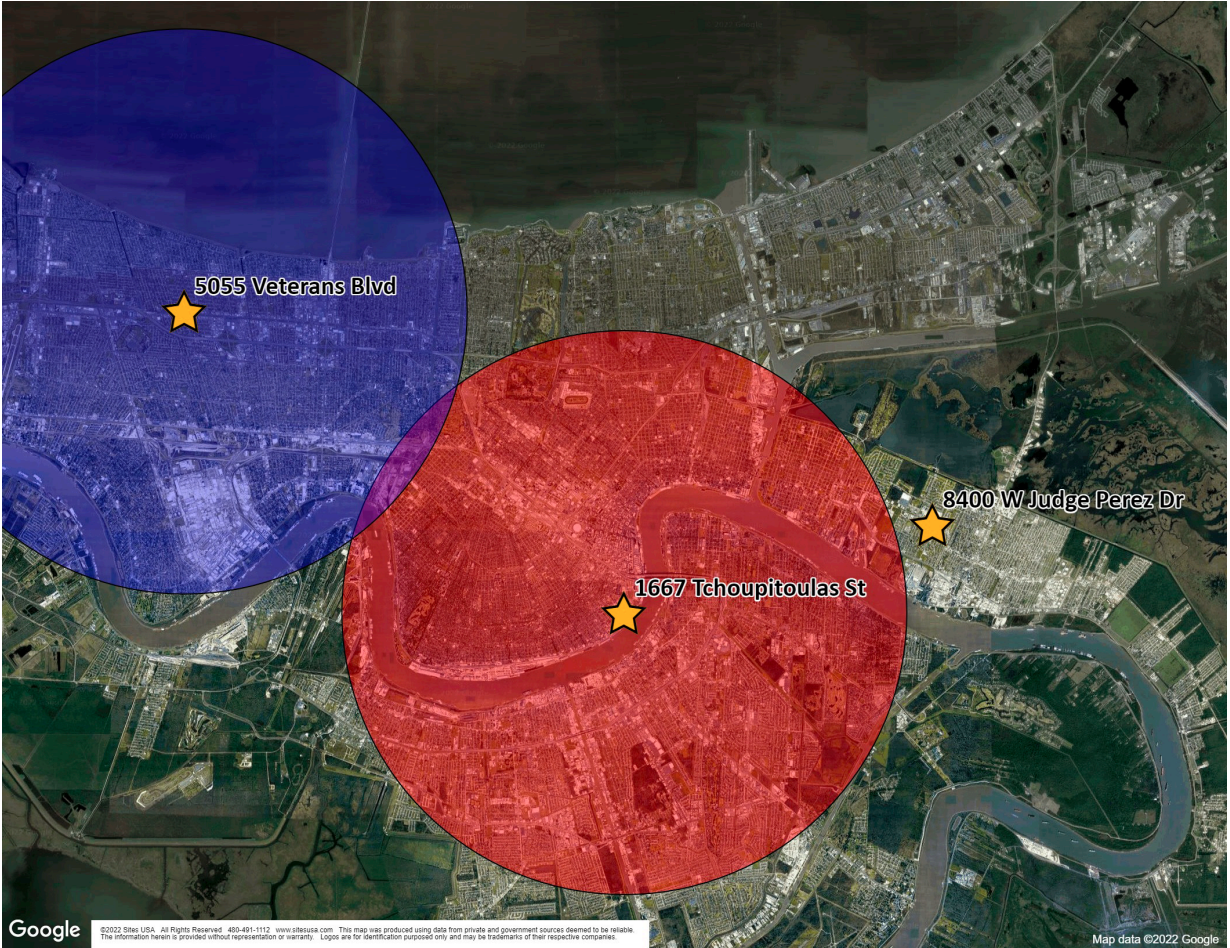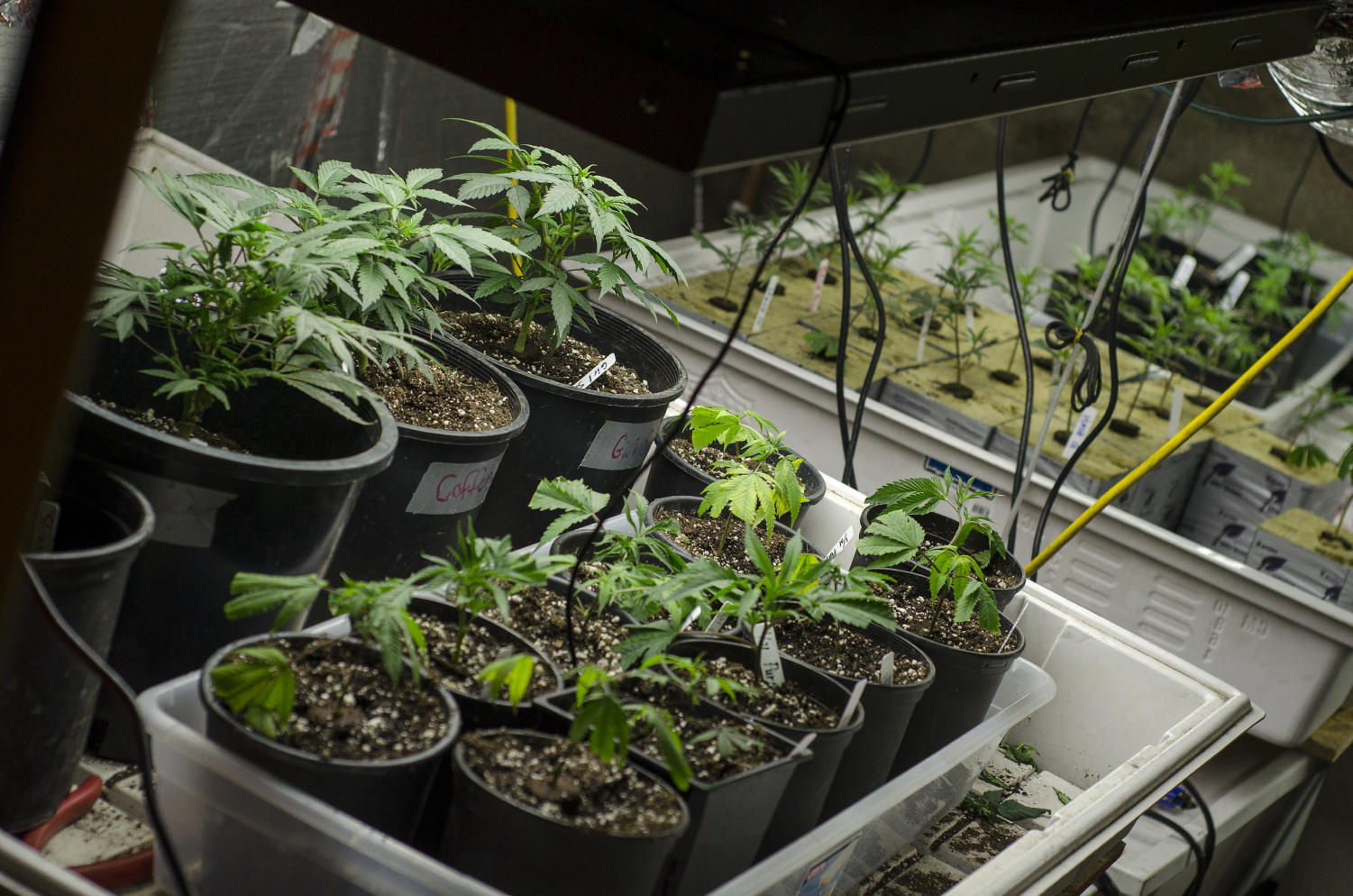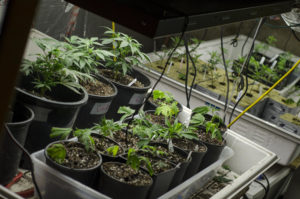Tulane contends for state’s 10th medical marijuana license
Louisiana’s coveted 10th medical marijuana license is up for grabs.
One of the contenders: Tulane University.
At stake is the right to provide medical marijuana in a state that regulates sales of the therapeutic drug so much that any new entrant is almost guaranteed no competition and high profits.
The university applied for the license in September, alongside 27 other applicants, including former New Orleans Saint Steve Gleason and Louisiana Democratic Party chair Katie Bernhardt. All will soon present their case to the state Board of Pharmacy in hopes of joining the select group of businesses.
“Those licenses are a really hot commodity,” Dr. Mordecai Potash, an associate professor of clinical psychiatry at Tulane, said.
Only two growers and nine pharmacies are currently allowed to tap the state’s lucrative market. The 10th license marks the latest loosening of rules that have bound the industry since it opened in 2019. From tinctures, to oils, to smokable flowers, Louisiana has cautiously legalized the use of medical marijuana over the last three years, paving the way for new treatments of chronic conditions yet also raising questions about safety and access as demand skyrockets.
Louisiana’s steps reflect fast-changing attitudes about the drug, which has long been criminalized. Increasing numbers of Americans want to use marijuana, and their state governments are listening.
If the Board of Pharmacy grants Tulane the license, “There’s tremendous potential for research,” Potash said. But, “The more products you have out there, the more pharmacies you have, the more medical marijuana product is dispensed to people. And the more product that’s dispensed, the greater chance that it gets shared with or diverted to people that aren’t supposed to be using it.”
Tulane’s application
Tulane is competing for the license to expand treatment services for doctors, medical students and patients.
“It is our desire to be on the forefront of medicine to support an environment where traditional therapies co-exist with alternative ones such as medical marijuana,” Lesley LeBlanc, director of Tulane Pharmacy, said.
If approved, the pharmacy would be called Tulane Medical Marijuana Dispensary and would open in Chalmette, Louisiana next July, according to application materials obtained by a public records request.
The university currently operates three traditional pharmacies, two in New Orleans and one in Alexandria, Louisiana.
Tulane’s application says all pharmacy staff would complete an initial medical marijuana training course and a minimum of one hour per year of medical marijuana education. Documents also say the pharmacy would offer one-on-one consultations, provide education series and train new patients in safety methods to avoid diverting medical marijuana to unauthorized users.
Tulane will present its case to a review committee in November. That group will make a recommendation to the Board of Pharmacy, who will likely decide the license by the end of the year.
Potash said the biggest challenges in opening the nine existing pharmacies were finances and supplies. There are a dozen forms of medical marijuana products allowed under Louisiana law, and all must come at different strengths to fit the needs of each individual patient.
Potash said awarding the license to Tulane would present huge research opportunities for the medical school, noting a University of Alabama at Birmingham study that examined the effects of CBD, a chemical found in marijuana, on epilepsy patients there. Tulane could duplicate that work, he said, and pursue their own research interests.
Dr. Arwen Podesta, a clinical faculty member for psychiatry at Tulane, said research surrounding medical marijuana is limited, often relying on patient anecdotes rather than clinical studies. She said Tulane could bring more weight to the industry than the nine existing pharmacies.
“Some of them are not very savvy in the pharmacy world, and they’re seeing it as a financial gain only,” Podesta said. “An academic institution would be better armed to be able to navigate the medical portion of this.”
LeBlanc said Tulane does not have concrete plans yet for how the proposed pharmacy could work with Tulane’s medical school, but the goal is to further education and provide community resources.
Potash said possible areas of research could include the impact of medical marijuana on conditions like depression, panic disorder and post-traumatic stress disorder.
“How well does medical marijuana actually work for those indications?” he said. “That’s a really open question.”
Past, present, future
In 2019, concentrated cannabis extracts called tinctures became the first legal medical marijuana product sold in Louisiana. From there, the conservative legislature slowly loosened restrictions. In 2020, the state allowed doctors to recommend medical marijuna for any debilitating condition, ranging from anxiety to cancer. And, last January, the state added smokable flowers to the growing list of medical marijuana products available in pharmacies, causing demand to soar.
The process is still restricted. The 10th pharmacy is the first new license granted since 2019, and all pharmacies are geographically distinct.
“These pharmacies by and large don’t compete with one another,” Potash said.
State law says pharmacies may open a “satellite” location if they reach 3,500 active patients. Seven of the nine currently operating pharmacies meet that standard, but H&W Drug Store in New Orleans is the only one who has sought plans to open a satellite.
Potash said he expects the industry to keep growing, but he hopes it is gradual, noting the overprescription issues that have historically plagued the neighboring opioid market.
“Too much product out there creates abuse,” he said.
Podesta said there is great value in using medical marijuana in controlled forms, but it is not for all patients.
“We have to be aware and mindful about this becoming a substance of misuse,” she said. “We just have to walk that line.”
Podesta said she would like to see Tulane awarded the license because medical marijuana is fast becoming mainstream, and adding a university to the mix of pharmacy operators could reap financial benefits and help researchers deepen understanding of the drug’s impacts.
“Times have changed a lot,” Podesta said. “We have been seeing a real culture shift, and also a shift in medical usage of plant medicine.” But, “If we’re calling it medical, let’s have a medical institution be part of the research and solution.”
Your donation will support the student journalists of Tulane University. Your contribution will allow us to purchase equipment and cover our annual website hosting costs.






